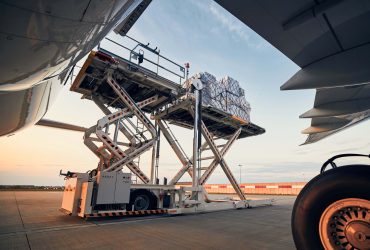Port Of Aberdeen To Go Fully Carbon Neutral By 2040
First established in 1136, the Port of Aberdeen is Britain’s oldest existing business. Now with plans to spend £55 million over the next 10 years on decarbonisation, they’re set to break further records still.
The aim to hit net zero by 2040 is a bold one and will make them the first UK port to go carbon neutral. To track their progress, Port of Aberdeen will measure their emissions against a 2019 baseline with 55,000 tonnes of CO2 equivalent across three scopes:
1. Direct
2. Indirect
3. Emissions from vessels
Work is already underway for the first two, but three will require greater cooperation with vessel owners and other partners.
Making meaningful reductions
The port has already taken action to reduce the environmental impact of its operations, starting with the roll-out of electric vehicles and installation of LED lighting on the quaysides. There is also a trial scheduled for hydrotreated vegetable oil for port-owned vessels and equipment.
Ultimately this research and scaling of alternative fuels, as well as electrifying all power-owned and controlled vessels, will take decades.
However, there’s no denying the transition poses significant benefits for the local communities, environment and wider maritime sector. After all, Aberdeen isn’t the only port under pressure to reduce their emissions.
Signs of a sea change
Associated British Ports (ABP) also announced a net zero target this year. The organisation represents several ports including the likes of Cardiff, Grimsby and Southampton. However, ABP is yet to set a deadline for their transition or a numerical target for reducing scope 3 emissions.
ABP’s lack of a timeline is reportedly due to there being no official global net zero guidance for ports. But that may change.
In February 2023, the UK government announced more than £130 million for maritime decarbonisation. They have advocated for the global shipping sector to reach ‘absolute zero’ C02 emissions by 2050. They even have interim goals that include launching at least one large zero-emission vessel on UK seas by 2025 and creating at least six zero-emission short-route shipping corridors this decade.
A new chapter for Aberdeen
This new initiative is only the latest in a series of projects being launched at the Port of Aberdeen. There has already been huge investment at the port. The new deeper and larger Aberdeen South Harbour has been the biggest marine infrastructure project in the UK.
It can now accommodate cruise ships and has also seen £400 million being spent to allow work including offshore wind, hydrogen and decommissioning.
Provided their transition is a success, Port of Aberdeen will likely serve as an example to other maritime organisations globally on how to reduce emissions.


